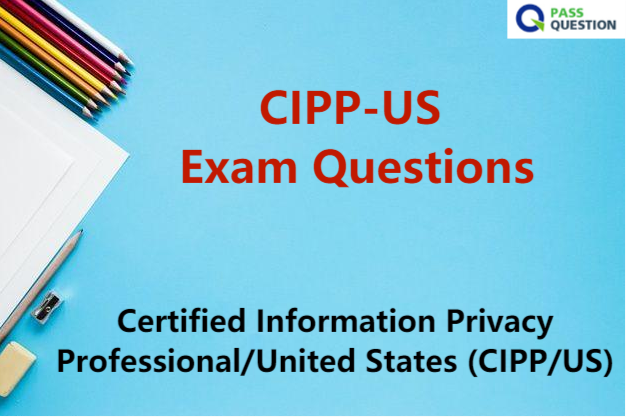CIPP-US Exam Questions - Certified Information Privacy Professional/United States (CIPP/US)
Certified Information Privacy Professional/United States (CIPP/US) exam is one of the most popular exams among IAPP certification exams. If you want to pass CIPP-US exam on fast track, then getting CIPP-US Exam Questions are the easiest way to become CIPP-US certified in the shortest period of time.Our CIPP-US exam training will provide you with real exam questions with verified answers that reflect the actual CIPP-US exam. We ensure 100% guarantee to pass the CIPP-US real exam using our CIPP-US Exam Questions. If you prepare for the exam using our CIPP-US Exam Questions, we guarantee your success in the CIPP-US final exam.

Certified Information Privacy Professional/United States(CIPP/US)
As the global gold standard for privacy professionals, the CIPP/US certification is a key industry benchmark among top employers.Backed by ANSI/ISO accreditation, a CIPP/US credential delivers higher earning potential and increased promotion opportunities because it shows you have a strong understanding of U.S. privacy laws and regulations.
Why Choose CIPP/US Certification?
- The CIPP is the global industry standard for professionals entering and working in the field of privacy.
- Achieving a CIPP/US credential demonstrates understanding of a principles-based framework and knowledge base in information privacy within the U.S. context.
- You'll be recognized as part of an elite group of knowledgeable, capable and dedicated privacy and data protection practitioners.
- Holding a CIPP/US designation elevates your leadership profile among your colleagues.
- The CIPP/US is a key benchmark among top employers for hiring and promoting privacy professionals.
Certified Information Privacy Professional/United States Exam Topics
- Introduction to the U.S. Privacy Environment
- Limits on Private-sector Collection and Use of Data
- Government and Court Access to Private-sector Information
- Workplace Privacy
- State Privacy Laws
View Online Certified Information Privacy Professional/United States(CIPP/US) Free Questions
Although an employer may have a strong incentive or legal obligation to monitor employees' conduct or behavior, some excessive monitoring may be considered an intrusion on employees' privacy? Which of the following is the strongest example of excessive monitoring by the employer?
A.An employer who installs a video monitor in physical locations, such as a warehouse, to ensure employees are performing tasks in a safe manner and environment.
B.An employer who installs data loss prevention software on all employee computers to limit transmission of confidential company information.
C.An employer who installs video monitors in physical locations, such as a changing room, to reduce the risk of sexual harassment.
D.An employer who records all employee phone calls that involve financial transactions with customers completed over the phone.
Answer : C
Which of the following became the first state to pass a law specifically regulating the collection of biometric data?
A.California.
B.Texas.
C.Illinois.
D.Washington.
Answer : C
What privacy concept grants a consumer the right to view and correct errors on his or her credit report?
A.Access.
B.Notice.
C.Action.
D.Choice.
Answer : B
A company's employee wellness portal offers an app to track exercise activity via users' mobile devices. Which of the following design techniques would most effectively inform users of their data privacy rights and privileges when using the app?
A.Offer information about data collection and uses at key data entry points.
B.Publish a privacy policy written in clear, concise, and understandable language.
C.Present a privacy policy to users during the wellness program registration process.
D.Provide a link to the wellness program privacy policy at the bottom of each screen.
Answer : C
What is the most effective kind of training CloudHealth could have given its employees to help prevent this type of data breach?
A. Training on techniques for identifying phishing attempts
B. Training on the terms of the contractual agreement with HealthCo
C. Training on the difference between confidential and non-public information
D. Training on CloudHealth’s HR policy regarding the role of employees involved data breaches
Answer: A
Comments
Post a Comment